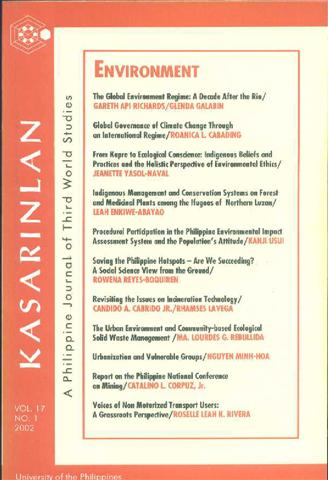Global Governance of Climate Change through an International Regime
Abstract
Climate change is largely attributed to the rise in greenhouse gases (GHGs) because of increased economic activities (e.g. manufacturing) propelled by globalization. Degrees of exposure to the effects of climate change vary, but all continents are affected. The impact transcends boundaries and generations. The seriousness of this environmental problem has made it a political issue, begging for solutions at the international level and the cooperation of every country. From holding conferences and agenda setting, the international regime on climate change has advanced to devising international legal instruments and creating institutions or organizations tasked to manage the problem. To weather the challenges that could undermine its effectiveness, the regime should first and foremost be able to increase its capacity to implement agreements and ensure compliance of participating countries. Towards this end, the regime should be democratic, transparent and accountable for its activities to be legitimate in the eyes I of governments, industry and the broader civil society.
How to Cite
CABADING, Roanica.
Global Governance of Climate Change through an International Regime.
Kasarinlan: Philippine Journal of Third World Studies, [S.l.], v. 17, n. 1, oct. 2007.
ISSN 2012-080X.
Available at: <https://journals.upd.edu.ph/index.php/kasarinlan/article/view/1536>. Date accessed: 27 aug. 2025.
Section
Features
Keywords
Climate Change; Greenhouse; Environmental Policy
By submitting a manuscript, the authors agree that the exclusive rights to reproduce and distribute the article have been given to the Third World Studies Center.



